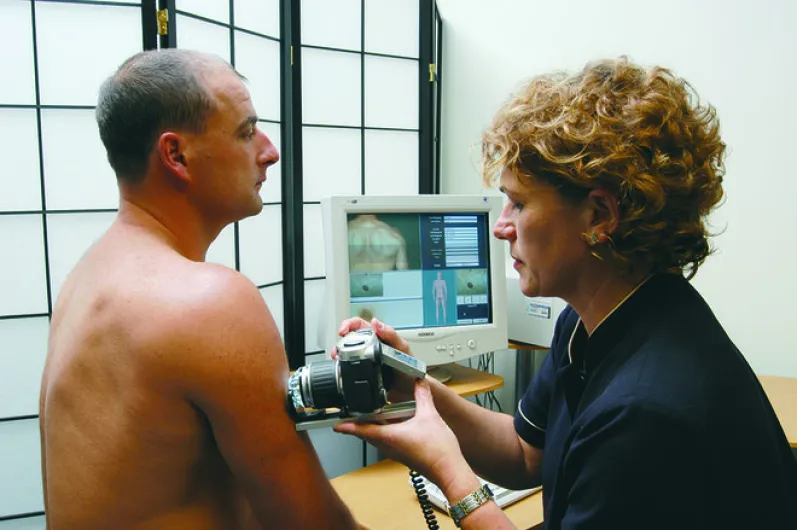NJSGA Partner Molesafe Offers Discount For Early Detection Of Skin Cancer

The New Jersey State Golf Association is partnering with MoleSafe, the worldwide leader in the early detection of skin cancer, to provide a new member benefit to NJSGA members. Molesafe utilizes new technology developed in conjunction with leading experts in the field of melanoma.
MoleSafe’s Skin Surveillance Program can detect melanoma at an early, and therefore, treatable stage.
“We have found that golfers are in the Number One demographic for melanoma. The highest incidence for melanoma is white men age 50 and over, and many are golfers who are exposed to the sun,” said Kevin Sheridan, chief executive officer of MoleSafe. “Many also don’t realize the added risk this exposure creates. Each year, more than 1 million Americans are affected by skin cancer and every hour an American will die from melanoma, the most lethal form of skin cancer.”
As a member benefit, NJSGA members will receive a 15 percent discount when they visit a MoleSafe center, either at its headquarters in Millburn or at The Valley Hospital in Ridgewood, CentraState Hospital in Freehold, or NYU Medical Center in New York.
Molesafe has already partnered with local corporations as part of their wellness programs and the company’s ongoing efforts to build awareness of skin cancer.
“Anyone who has been at a golf club has seen members walking around with small bandages on their heads, ears, hands, etc. The worst time to be in the sun is between 10 a.m. and 3 p.m. and that’s when most of the golf is being played. A lot of us don’t use enough sunscreen,” noted Sheridan. “Anyone who has had five sunburns in their lives have doubled their chances of acquiring melanoma.
“What sets MoleSafe apart is that we identify melanoma early, when it’s still thin and easily treated. MoleSafe is also accurate and reduces the need for unnecessary excisions and biopsies. MoleSafe patients have 95 percent fewer excisions than would result from a standard visual exam,” Sheridan added.
MoleSafe’s program incorporates a suite of advanced melanoma detection and diagnosis tools and technology, including total body photography, digital dermoscopy, and digital serial monitoring.
“Skin cancer continues to become increasingly pervasive in the U.S., with New Jersey ranking in the top 10 states with the highest numbers of new melanoma cases, making it imperative that individuals take precaution in their skin health and physicians provide patients with the most comprehensive detection programs available,” said Richard Bezozo, M.D., President of MoleSafe.
The MoleSafe procedure, which started in New Zealand, represents a new standard of care and is part of a life-long program for the early detection of melanoma. Its key elements include:
Risk Assessment: Using its database, MoleSafe has developed a risk assessment model that can help identify patients who may be at higher risk of melanoma.
Total-Body Photography: The use of total-body photography creates a baseline of the patient’s skin and therefore helps the MoleSafe specialists to identify both new and changing lesions that might indicate melanoma skin cancer.
Serial Digital Dermoscopy: Individual moles are imaged using dermoscopy, a technique that combines high magnification and high light intensity, allowing doctors to see below the skin surface, providing them with more information than the naked eye to determine if skin lesions are benign or malignant. Moles are tagged to their location on the body for subsequent diagnosis, identification and comparison over time.
Diagnosis and Management: The patient’s complete skin record, including digital images and clinical information, is sent via a secure tele-dermatology network to MoleSafe’s panel of world-class melanoma dermatologists (dermoscopists) for analysis and reporting. Patients and their designated doctors receive their reports and their digital melanogram.
Education and Follow-up: The MoleSafe melanographer, a trained nurse, educates patients about the risks of sun exposure, and helps generate a continuing partnership between MoleSafe, the patient, and his/her doctor.
To book an appointment or for more information on MoleSafe, please visit molesafe.com or call 1-877-MOLESAFE (1-877-665-3723).
